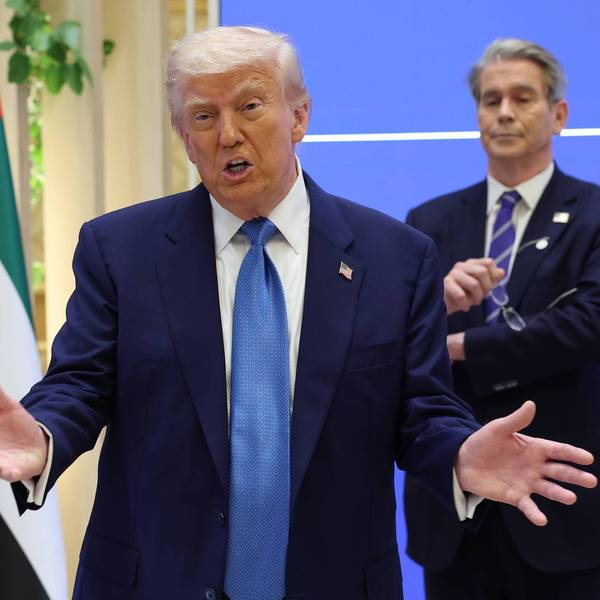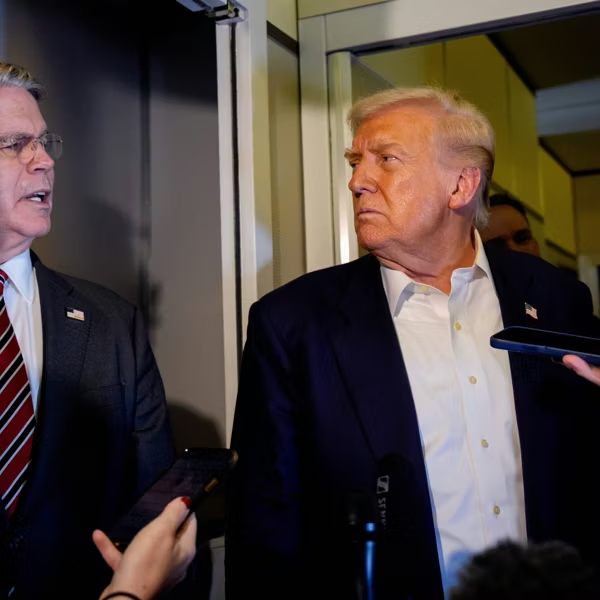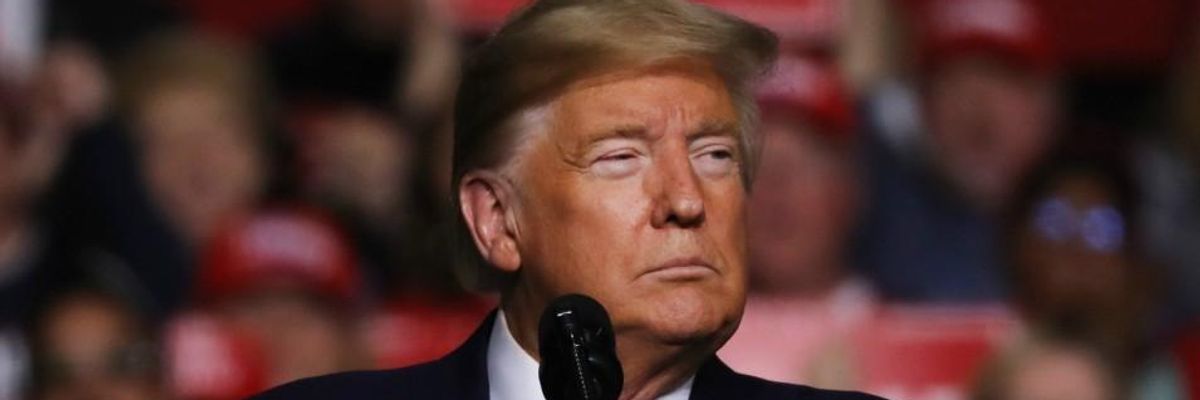The great problem of legislation is, so to organize the civil government of a community . . . that in the operations of human institutions upon social action, self-love and social may be made the same.
-- John Quincy Adams, Society and Civilization
Herewith the questions of the week for savvy readers to ponder and, perhaps, answer.
What is, as of this writing, one of the Trump-inspired provisions in the $1 trillion coronavirus relief bill that, to Mitch McConnell's surprise, has been included? Here's a hint: the location of a government building.
Here is the next question: which government building? Here is the answer: the FBI headquarters. They are now located catty corner across from Trump International Hotel on Pennsylvania Ave. NW in D.C.
Here is the last question: what does the location of the FBI headquarters have to do with the $1 trillion coronavirus relief bill. The answer to that is not obvious so I will spare my readers' puzzlement by telling them: everything and nothing.
The J. Edgar Hoover Building FBI headquarters is in a decrepit state. Long before Trump moved to Washington, it was accepted that a new headquarters was required, and considerable effort had gone into selecting possible new locations for the headquarters. By June 2017, federal officials had lit upon three "finalist" locations: one in Virginia and two in Maryland. Not only had the three finalists been selected, but Congress had appropriated $913 million for the project that, when completed, was expected to cost more than $3 billion.
The proposed new building was to accommodate the FBI personnel presently working in the capitol, would offer greatly increased security, and would get the agency out a building that was outdated and dilapidated. Enter Trump. He was reportedly "dead opposed" to moving the FBI headquarters out of downtown D.C. As a result, plans to relocate the FBI to the suburbs were abandoned. Trump decided the J. Edgar Hoover building should be torn down and a much smaller one erected in its place. The new building would be 2.6 million square feet, would cost $3.3 billion and would not be able to accommodate all the employees in the present structure. As a result, 2,300 employees would be given the opportunity to relocate to Alabama, Idaho and West Virginia if they wanted to continue working for the FBI. In addition, by keeping the headquarters in its present location, expenses would be double. The FBI would have to bear the expense of moving into a temporary location while the new building was being built, and when completed, bear the expense of moving back into the new quarters.
When the decision to keep the FBI in its present location was announced in mid-2017, many observers, including some members of Congress were puzzled. Upon sober analysis, however, the reasons became clear even though masked in the obfuscatory language favored by Trump.
In a press briefing on July 23, 2020, Trump was asked whether the issue of the FBI building was holding up the approval of the economic aid package that the senate Republicans appeared to be close to finalizing. In response he said there is not a better location for the FBI than its present site. He said it would be an incredible building with a running track on the roof because "FBI people like to work out a lot." Others came up with another explanation for why Trump wants to keep the FBI in its present location.
The present location is one block away from Trump International Hotel, a continuing source of income for Trump. If an FBI building remains in that location, Trump is assured that no competing hotel will be built there. From the Trump point of view including a provision in the aid package to protect his income was as important as providing aid to the millions of people whose livelihoods have been demolished by the coronavirus.
When the proposed Republican coronavirus package was unveiled on July 27, 2020, it was observed by some that it included $1.75 billion for "the design and construction of a Washington, DC headquarters facility for the Federal Bureau of Investigation." Since it was such a small sum it is no surprise that in response to a question, Mitch McConnell appeared to be unaware that funding for the FBI building was in the bill. When an aide assured him it was, Mr. McConnell responded to another questioner who asked why funding for the FBI building was part of the bill, saying the Trump administration would have to "answer the question of why they insisted on that provision" since he, as Majority Leader, is apparently not required to know why provisions in legislation being sponsored by his party are included. He has learned.
In an interview with Judy Woodruff on the PBS News Hour two days later, Mr. McConnell said that funding for the FBI headquarters of which he had been unaware two days earlier, was in fact one of three provisions he would like to see deleted from the final bill because, as he astutely observed, it has nothing to do with the purpose of the proposed relief package. Perhaps he'll suggest to Trump that it be removed. Don't count on it; and don't expect its removal.




